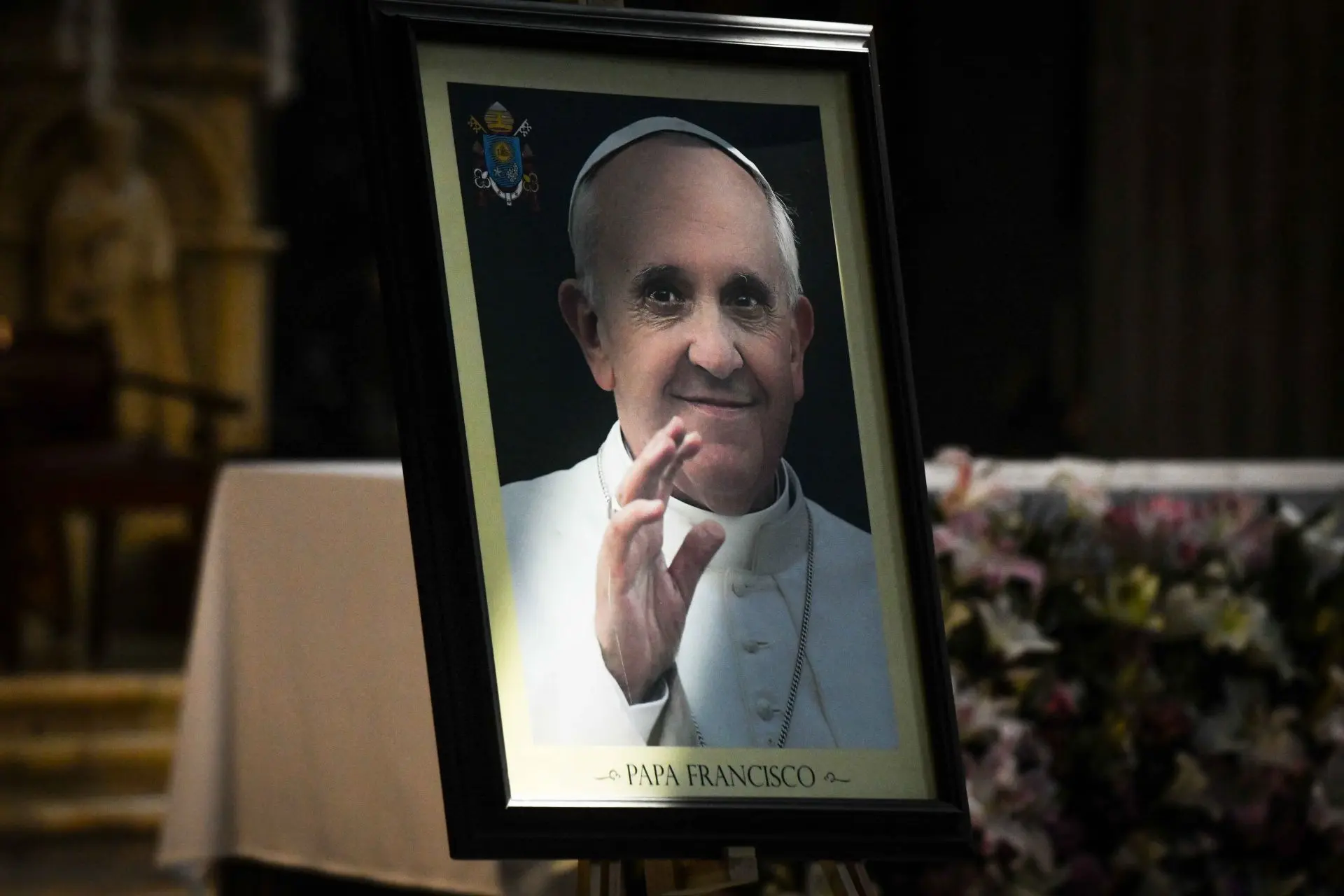
By Diego Camacho Larrea. SPR Informa. Mexican Press Agency
Throughout his 88 years on this planet, Jorge Mario Bergoglio was many things. His first “job” was being a fan of San Lorenzo de Almagro, the soccer team from his neighborhood, Miraflores in eastern Buenos Aires. In the stands of the Old Gasómetro stadium, he became a believer in the religion of the soccer ball—one that defies logic but moves thousands to their temples every Sunday, hoping that from the heavens, the divine will enlighten one of the 22 players to perform the awaited miracle: the goal. Argentine pitches were his greatest school of faith. There, he sang, shouted, and surely yelled at some Huracán player—San Lorenzo’s classic rival. In one of those matches, he learned that sometimes faith is not enough, and that one must seek the change they pray for. He also encountered humanity’s most common flaws: envy, violence, and greed.
Over time, he brought the teachings of soccer to his second profession as a literature teacher at the Inmaculada Concepción School, where he taught high school students who remember him as demanding but understanding, and always seeking the common good. One student even said he made them think like Borges and debate like Shakespeare. During the year he was part of the faculty, he didn’t just fulfill his teaching schedule. When the recess bell rang, he often joined the soccer games organized by students and seminarians, using the sport as a formative tool. On those afternoons of bonding, when someone wouldn’t pass the ball and tried to take on everyone with a solo move worthy of Sívori or Artime (the Argentine idols of the time), he would firmly say: “He who doesn’t play as a team, loses even recess.”
Four years after leaving his job as a teacher, he was ordained as a priest in the chapel of the Colegio Máximo de San José. These were difficult times, as the military dictatorship had begun. Several of his fellow Jesuits, including priests Orlando Yorio and Francisco Jalics, were persecuted for their leftist views. A broad debate exists on whether Bergoglio protected or handed them over to the military regime.
By 1986, the dictatorship in Argentina had ended, but the country was still undergoing a process of social and political reconstruction. The national team’s victory—under coach Carlos Bilardo and the brilliance of Diego Maradona—represented a moment of pride and euphoria for Argentinians, who finally saw a triumph after years of suffering and repression. Bergoglio, by then already serving as Provincial of the Jesuits and a prominent religious leader committed to social justice and critical of the dictatorship, later stated that this victory was one of the greatest emotional highs that sports ever gave him. For this reason, he always had kind words for the team captain:
“Maradona is a man who, like many, has had his weaknesses and downfalls, but he has also had moments of greatness. God sees people’s hearts, and we should not judge anyone.”
In total, Bergoglio held 12 different titles inside and outside the Catholic Church before being selected as Pope in 2013. As the Supreme Pontiff, he likely recalled his days in San Lorenzo’s stadium, pushing the players from the stands to win matches. Inspired by that same spirit, Pope Francis promoted significant reforms aimed at modernizing the Church and addressing contemporary issues. Many of these reforms faced resistance from traditional sectors that preferred to maintain the status quo. His efforts to promote financial transparency in the Vatican and fight corruption within the Roman Curia were not welcomed by those who benefited from the system’s opacity. Yet, the opposition from those who wanted everything to stay the same did not stop him. He championed a greater role for women in the Church and advocated for a Church that stood closer to the poor. He denounced the unfair distribution of wealth brought by neoliberalism and the lack of willingness from governments to promote a sea change.
Thus, it surprised no one when, in 2021, he sent a letter to then-President López Obrador encouraging him not to rest and to continue his transformative efforts.
Jorge Mario Bergoglio ended his life as Pope Francis I, but he was much more than a Pope. He was a man of transformation who was not content with what already was but sought change. Today, the man who learned solidarity in Boedo has departed for heaven, where he is surely playing the eternal match—always on the offensive, because as he once said: “You always have to play forward, kick forward, because that’s how we can build a better world.”
Related: Wise and Profound: President Claudia Sheinbaum Remembers Pope Francis